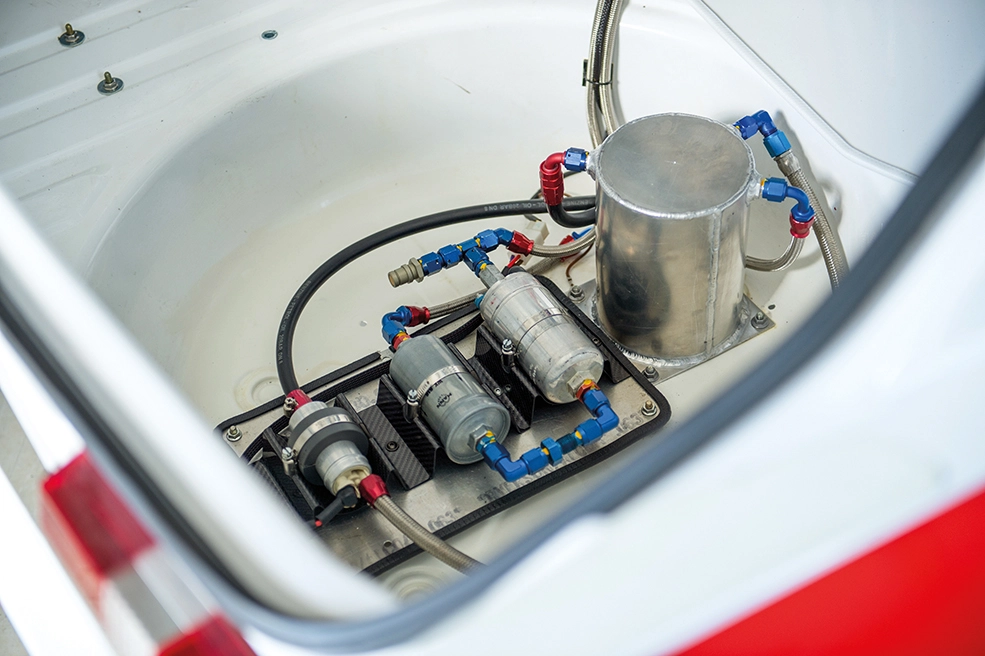Introduction
When it comes to the efficient functioning of a vehicle, various components work together harmoniously. One crucial element that often goes unnoticed but plays a significant role is the low pressure fuel line. This article will delve into the importance of low pressure fuel lines, their function, and their impact on vehicle performance. By understanding the role of these fuel lines, you’ll gain insights into the significance of maintaining their integrity and ensuring their proper functioning.


What are Low Pressure Fuel Lines?
Low pressure fuel lines are an essential part of a vehicle’s fuel system. These lines carry fuel from the fuel tank to the engine, supplying the necessary amount of fuel for combustion. Unlike high-pressure fuel lines, which transport fuel under significant pressure, low pressure fuel lines operate at lower pressures.
Function of Low Pressure Fuel Lines
The primary function of low pressure fuel lines is to transport fuel from the fuel tank to the engine. They ensure a steady flow of fuel at the required pressure, enabling efficient combustion. By maintaining a consistent fuel supply, these lines contribute to the overall performance and smooth operation of the vehicle.
Materials Used in Low Pressure Fuel Lines
Low pressure fuel lines are typically constructed using flexible rubber hoses or high-grade synthetic materials. These materials provide durability, flexibility, and resistance to various factors such as heat, chemicals, and vibrations. It is important to ensure that the chosen materials are compatible with the type of fuel used in the vehicle to prevent damage and maintain optimal performance.
Importance of Proper Maintenance
Regular maintenance of low pressure fuel lines is vital for the overall performance and longevity of a vehicle. Over time, these lines can degrade due to exposure to external factors such as heat, chemicals, and physical wear. Any damage or leakage in the low-pressure fuel lines can disrupt the fuel supply, leading to poor engine performance, reduced fuel efficiency, and potential safety hazards.
Signs of Low-Pressure Fuel Line Issues
Identifying signs of low-pressure fuel line issues can help prevent further damage and ensure prompt repairs. Some common indicators include:
a. Fuel leaks:
Check for any visible signs of fuel leakage around the low-pressure fuel lines or the fuel tank. The smell of gasoline or the presence of stains under the vehicle could indicate a leak.
b. Engine misfires:
If the engine misfires or runs roughly, it may be due to inadequate fuel supply caused by a malfunctioning low-pressure fuel line.
c. Reduced fuel efficiency:
A drop in fuel efficiency could indicate issues with the low-pressure fuel lines, resulting in inefficient fuel delivery.
d. Difficulty starting the engine:
If the engine takes longer to start or requires multiple attempts, it may be due to inadequate fuel reaching the engine.
Importance of Replacing Damaged Low-Pressure Fuel Lines
When low-pressure fuel lines are damaged, immediate replacement is crucial to maintain optimal vehicle performance. Damaged or deteriorated fuel lines can cause fuel leaks, leading to safety hazards, reduced fuel efficiency, and engine malfunctions. By replacing the damaged lines with high-quality replacements, you can ensure a reliable fuel supply and prevent potential issues.
Choosing the Right Replacement Fuel Lines
When selecting replacement low-pressure fuel lines, it’s essential to choose high-quality parts that meet the specifications of your vehicle’s make and model. Ensure the new fuel lines are made from materials suitable for the type of fuel used and are designed to withstand the operating conditions of your vehicle. Consulting a professional or referring to the vehicle manufacturer’s guidelines can help in making an informed decision.
Regular Inspections and Maintenance
To prevent low-pressure fuel line issues, regular inspections and maintenance are essential. Periodically check the fuel lines for signs of wear, leaks, or damage. Additionally, ensure that connections are secure and that the lines are free from any blockages. Regular maintenance can help identify and address any potential problems before they escalate, ensuring the continued smooth operation of your vehicle.
Conclusion
In conclusion, low-pressure fuel lines are a vital component of a vehicle’s fuel system. They play a significant role in maintaining a consistent fuel supply to the engine, contributing to optimal performance and efficiency. Regular maintenance, timely repairs, and choosing high-quality replacement parts are crucial for ensuring the proper functioning of low-pressure fuel lines. By prioritizing the health of these lines, you can enhance your vehicle’s overall performance and enjoy a smoother driving experience.
Remember, paying attention to the often overlooked aspects of your vehicle, such as low-pressure fuel lines, can make a significant difference in its long-term performance and reliability.



